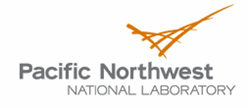Spotlight

|
| CompSust-2023: 2023 NeurIPS Workshop on Computational Sustainability: Pitfalls and Promises from Theory to Deployment |

|
| CompSust-2022: Doctoral Consortium on Computational Sustainability |

|
| CompSust-2020: Doctoral Consortium on Computational Sustainability |

|
| CompSust-2019: Doctoral Consortium on Computational Sustainability |
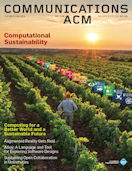
|
| Communications of the ACM: Computational Sustainability: Computing for a Better World and a Sustainable Future |
| Video |
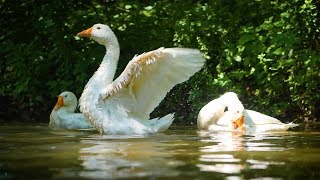
|
| [Video] Institute for Computational Sustainability (ICS) from ICIAM 2019 TV |
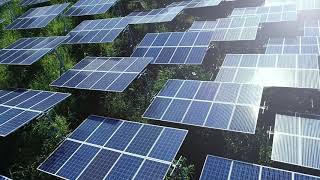
|
| [Video] Computational Sustainability: Computing for a Better World |

|
| CompSust-2018: Doctoral Consortium on Computational Sustainability |

|
| CompSust-2017: Doctoral Consortium on Computational Sustainability |

|
| CompSust-2016: 4th International Conference on Computational Sustainability |
| CompSustNet: Computational sustainability research and education network. |

|
| UDiscoverIt: Human computation, citizen science, and crowdsourcing for scientific discovery. |
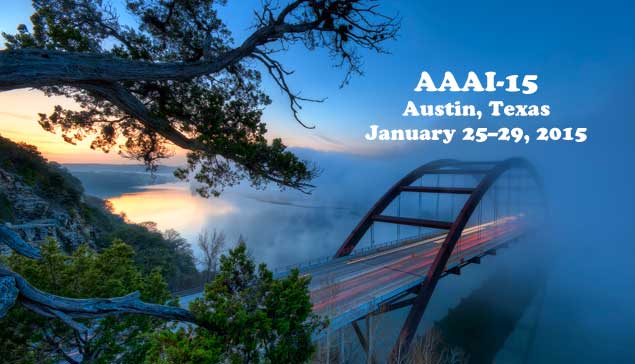
|
| AAAI 2015 to feature special track on Computational Sustainability and AI |
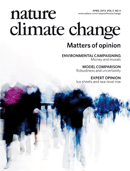
|
| Nature Climate Change: Shifts in Arctic vegetation and associated feedbacks under climate change |
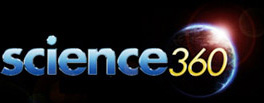
|
| Science 360 from the NSF: Computational Sustainability video featured |
| New Applied Math and Computational Sustainability Video: from ICIAM |
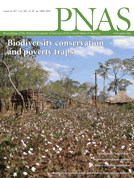
|
| Proceedings of the National Academy of Sciences (PNAS): Biodiversity Conservation and Poverty Traps Special Feature |
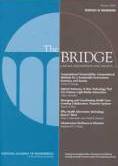
|
| The Bridge: Computational Sustainability article appears in NAE publication |

|
Events
CompSust-2022: Doctoral Consortium on Computational Sustainability
March 11-12, 2022
AI-driven autonomy to accelerate X-ray experiment-based discovery - CHESS 2030 Workshop
June 21-22, 2021
CompSust-2020: Doctoral Consortium on Computational Sustainability
October 17-18, 2020
CompSust-2019: Doctoral Consortium on Computational Sustainability
October 18-20, 2019
CompSust-2018: Doctoral Consortium on Computational Sustainability
September 14-16, 2018
CompSust-2017: Doctoral Consortium on Computational Sustainability
July 13-14, 2017
CompSust-2016: 4th International Conference on Computational Sustainability
July 6-8, 2016
CompSust'12: 3rd International Conference on Computational Sustainability
July 4-6, 2012
Machine Learning for Sustainability Workshop at NIPS 2011
December 16-17, 2011
CompSust09: 1st International Conference on Computational Sustainability
June 8-11, 2009
News
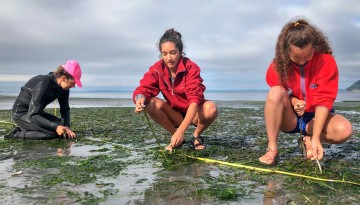
|
AI-powered analysis uncovers marine herbivores' impact on eelgrass disease spread
In two new papers, Cornell plant-herbivore experts and researchers from the Cornell Institute for Computational Sustainability joined forces to show the significant impacts of herbivores like sea snails on the spread of seagrass wasting disease. Grazing by small herbivores was associated with a 29% increase in the prevalence of disease, which contributes to huge losses in meadow areas from San Diego to Alaska. |

|
Carla Gomes named Schmidt AI2050 Senior Fellow
Schmidt Sciences has named Carla P. Gomes, the Ronald and Antonia Nielsen Professor in the Cornell Ann S. Bowers College of Computing and Information Science, an AI2050 Senior Fellow for her work on innovative artificial intelligence approaches to advance scientific discovery, focusing on significant sustainability challenges facing humanity. |

|
NSF grant supports AI-driven sustainability research, training
A new program at Cornell will tackle critical environmental challenges by integrating advanced artificial intelligence (AI) tools with sustainability research across the campus, thanks to a grant from the National Science Foundation's Research Traineeship Program. |

|
AAAI-24 AI for Social Impact Track Best Student Paper Award
Marc Grimson et. al. received the AAAI-24 AI for Social Impact Track Best Student Paper Award for the paper "Scaling Up Pareto Optimization for Tree Structures with Affine Transformations: Evaluating Hybrid Floating Solar-Hydropower Systems in the Amazon." |

|
AI analyzes bird sightings to help conserve species
For the first time, big data and artificial intelligence are being used to model hidden patterns in nature — not just for one bird species, but for entire ecological communities across continents. The models follow the full annual life cycle of each species, from breeding to fall migration to nonbreeding grounds, and back north again during spring migration. The development and application of this computational tool is the result of a collaboration between the Cornell Lab of Ornithology and the Cornell Institute for Computational Sustainability. This work was published Oct. 2 in the journal Ecology. |

|
Little by little, a bird builds its nest
Dr Carla Gomes, Ronald C. and Antonia V. Nielsen Professor of Computing and Information Science, director of the Institute for Computational Sustainability, and co-director of the newly established AI for Science Institute at Cornell University, discusses with Nature Computational Science her research on sustainability and how we can address the world's most pressing issues little by little. |
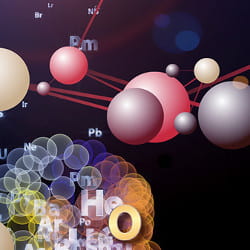
|
Artificial Intelligence for Materials Discovery
The software-driven successes of deep learning have been profound, but the real world is made of materials. Researchers are turning to artificial intelligence (AI) to help find new materials to provide better electronics and transportation, and the energy to run them. Despite its undeniable power, however, "Machine learning, especially the deep learning revolution, relies heavily on large amounts of data," said Carla Gomes, a computer scientist at Cornell University. "This is not how science works," she said. "The key next step is for us to incorporate more and more reasoning capabilities and combine these vast amounts of data with reasoning capabilities." |

|
AI reveals scale of eelgrass vulnerability to warming, disease
A combination of ecological field methods and cutting-edge artificial intelligence has helped an interdisciplinary research group detect eelgrass wasting disease at nearly three dozen sites along a 1,700-mile stretch of the West Coast, from San Diego to southern Alaska. The key finding: Seagrass wasting – caused by the organism Labyrinthula zosterae and detectable via lesions on the grass blades, confirmed with molecular diagnostics – is associated with warmer-than-normal water temperatures, particularly in early summer, regardless of the region. Eelgrass is a vital coastal species of seagrass for fish habitat, biodiversity, shoreline protection and carbon sequestration. |
|
|
Gomes Receives ACM – AAAI Allen Newell Award
Carla Gomes received the ACM–AAAI Allen Newell Award for establishing and nurturing the field of computational sustainability and for foundational contributions to artificial intelligence. Gomes is a leader in AI, particularly in reasoning, optimization, and the integration of learning and reasoning. She is the driving force behind the new subfield of computational sustainability, embodying the values of multidisciplinary research and social impact. Her research advances core computer science and AI while establishing rich connections to other disciplines. |

|
Floating solar power could help fight climate change — let's get it right
Solar panels need to be deployed over vast areas worldwide to decarbonize electricity. By 2050, the United States might need up to 61,000 square kilometres of solar panels — an area larger than the Netherlands. Land-scarce nations such as Japan and South Korea might have to devote 5% of their land to solar farms. The question of where to put these panels isn't trivial. There is fierce competition for land that is also needed for food production and biodiversity conservation. One emerging solution is to deploy floating solar panels ('floatovoltaics') on reservoirs. The idea of floatovoltaics holds much promise, and there has been a rapid rise in installation and investments. But there are still many unknowns about the technology's environmental impacts, along with its social, technical and economic dimensions. |
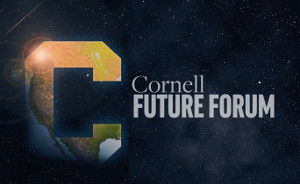
|
The 2030 Project to marshal faculty to solve climate crisis
A panel discussing "Computer Science for a Better World and Sustainable Future" featured Carla Gomes, Alex Flecker, and Dan Fink, and was moderated by Kavita Bala, dean of Cornell Bowers CIS. Computational sustainability, Gomes said, may be the foundation for helping other scientific fields achieve environmental action. Flecker discussed how artificial intelligence enabled strategic hydropower planning across the Amazon basin; and Fink demonstrated how AI adjusts for gaps in citizen science data and how it can promote sustainability. |

|
Episode 4: Meet research team member SARA
In this podcast episode, MRS Bulletin's Sophia Chen interviews Carla Gomes, Michael Thompson, and Max Amsler of Cornell University about their robot, SARA—Scientific Autonomous Reasoning Agent. Unlike commonly known artificial intelligence (AI) applications such as the neural networks that enable image recognition, SARA performs within a closed loop system through a type of AI known as active learning, which allows the system to reason without a lot of training data. Within 30 minutes, SARA figured out how to make delta phase bismuth oxide and cool it to room temperature, saving the research team two full days of experiments. |

|
AI enables strategic hydropower planning across Amazon basin
Rapid hydroelectric dam expansion in the Amazon poses a serious threat to Earth's largest and most biodiverse river basin. There are 158 dams in the Amazon River basin, with another 351 proposed; these projects are typically assessed individually, with little coordinated planning. A new study, published in Science, provides the first computational approach for evaluating basin-level tradeoffs between hydropower and ecosystem services, with the goal of guiding sustainable dam siting. |

|
Autonomous experiment finds stable fuel-cell material in minutes
A robotic experimenter has discovered a stable bismuth oxide that could be useful in fuel cells. The researchers who built it say the achievement demonstrates how autonomous synthesis and analysis equipment powered by machine learning can make sense of complex materials science systems faster than humans and traditional methods can. Their autonomous experimenter comprises a laser which anneals thin-film Bi2O3 to produce different phases. A machine learning algorithm analyzes microscopy and reflectance spectroscopy images of the annealed sample to map phase boundaries, then proposes new settings for the laser. The goal of the algorithm, called Scientific Autonomous Reasoning Agent (SARA), was to map the conditions that produce different phases in as few experiments as possible. |

|
AI powers autonomous materials discovery
SARA (the Scientific Autonomous Reasoning Agent) integrates robotic materials synthesis and characterization, along with a hierarchy of artificial intelligence and active learning methods, to efficiently reveal the structure of complex processing phase diagrams, making materials discovery vastly quicker. For this work, the researchers are focusing on inorganic materials, especially those that can be trapped in "metastable" states that ultimately may transform to an "equilibrium" state with time. For example, diamond is metastable and will eventually transform into graphite if given enough time. |

|
Climate-driven disease compromises seagrass health
In an oceanic omen for climate change's intensifying effects, Cornell-led research shows that seagrass — through large swaths of intertidal meadows in the Pacific Northwest — suffers from a lesion-filled wasting disease. The grasses' once-vibrant plant root systems are deteriorating, too. "Not only are we seeing more seagrass wasting disease outbreaks, we're seeing a severe impact within the vital nutrient stores of these plants in the roots — so they become compromised late in the growing season, setting them up for a harder winter," said co-lead author Olivia Graham, a doctoral student in the field of ecology and evolutionary biology. |

|
"Clarity and well-chosen examples are critical to communicating research" — An Interview with Carla P. Gomes
Gomes' research group has been supported by over $50M in basic research funds. She is currently the lead PI of a new NSF Expeditions-in-Computing that established CompSustNet, a large-scale national and international research network, to further expand the field and Computational Sustainability. She has (co-)authored over 150 publications that have appeared in various publications focused on and conjugated with Nature, Science, and a variety of conferences and journals in AI and Computer Science, including five best paper awards. Gomes is a Fellow of the Association for the Advancement of Artificial Intelligence (AAAI), a Fellow of the Association for Computing Machinery (ACM), and a Fellow of American Association for the Advancement of Science (AAAS). |
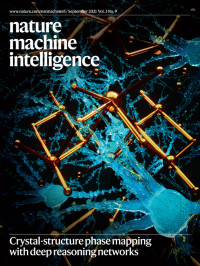
|
DRNets can solve Sudoku, speed scientific discovery
An interdisciplinary research team led by Carla Gomes has developed Deep Reasoning Networks (DRNets), which combine deep learning — even with a relatively small amount of data — with an understanding of the subject's boundaries and rules, known as "constraint reasoning." |
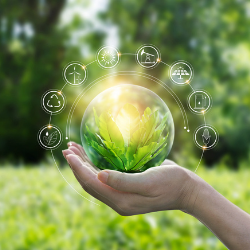
|
Computational sustainability meets materials science
Computational sustainability harnesses computing and AI for human well-being and the protection of our planet. Materials science is central to many sustainability challenges. Exploiting synergies between computational sustainability and materials science advances both fields, furthering the ultimate goal of establishing a sustainable future. |
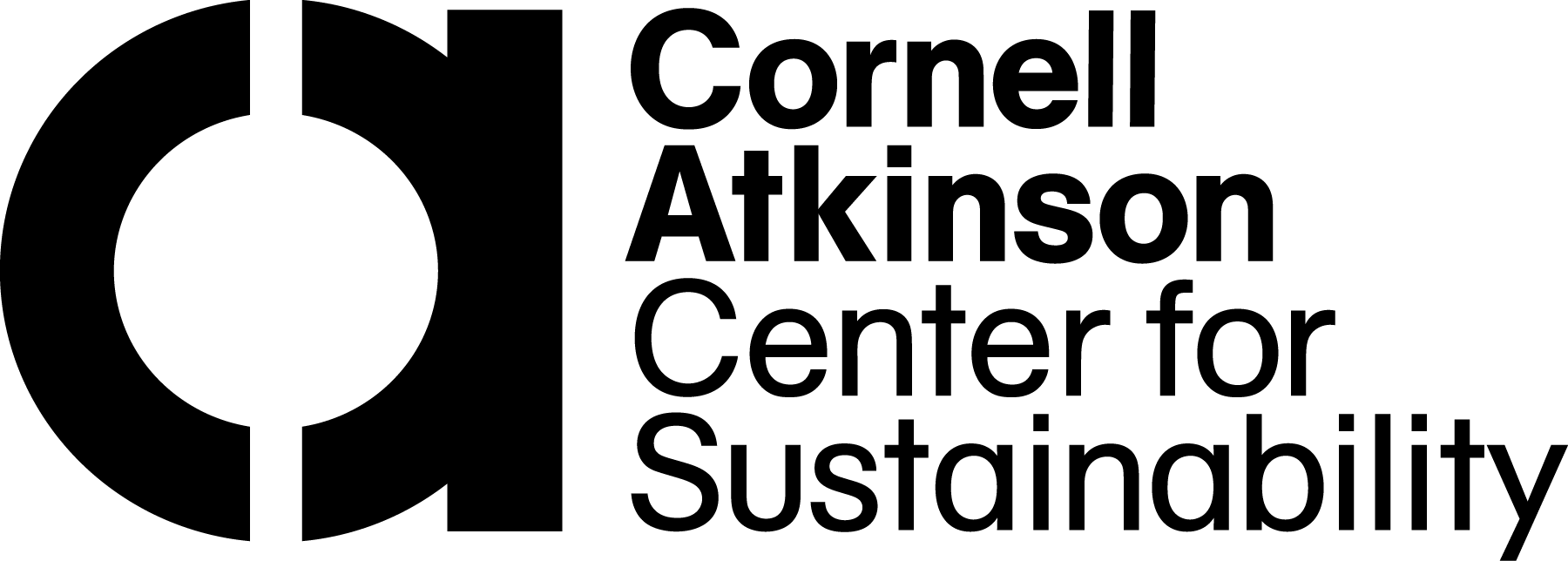
|
Carla Gomes Receives Cornell Atkinson Grant to Study Amazonian Aquaculture
ICS Director Carla Gomes is part of a Cornell team who received a Cornell Atkinson Academic Venture Fund (AVF) seed grant to study environmental and nutritional tradeoffs of expanding Amazonian aquaculture. Gomes will be collaborating with Alexander Flecker, Kathryn Fiorella, Xiangtao Xu, and Suresh Sethi. Aquaculture has become a critical component of global food systems and is expanding with the promise of enhancing nutrition while minimizing the environmental costs of animal food production. In this project, collaborators will evaluate the ecological and nutritional impacts of emerging aquaculture in the Amazon Basin. Results will produce insights that will support production while minimizing ecosystem impacts in the Amazon. |
|
|
AI-driven autonomy to accelerate X-ray experiment-based discovery - CHESS 2030 Workshop
On June 21-22nd, the Cornell High Energy Synchrotron Source will host a highly interdisciplinary online workshop identifying important fundamental questions related to artificial-Intelligence-driven autonomy in combination X-ray based characterization techniques. The workshop will bring together leaders in the field from industry, academia, and the national labs to explore and articulate the most critical opportunities and challenges to exploiting artificial intelligence and automation for materials discovery. |
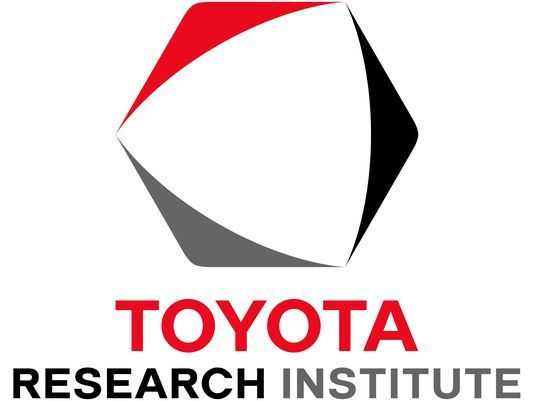
|
Grant to accelerate AI materials discovery and design
Cornell is partnering in a $36 million grant from the Toyota Research Institute (TRI) for its Accelerated Materials Design and Discovery (AMDD) collaborative university research program, which seeks to use artificial intelligence to discover new materials that could help achieve emissions-free driving. ICS Director Carla Gomes is among the lead researchers on the four-year, multi-institution grant. |
|
|
Autonomous materials development using in situ laser annealing and scan-probe, grazing incident x-ray microdiffraction
During the 2021-1 run cycle at the FMB-beamline of MSN-C, an interdisciplinary group of researchers demonstrated the first use of an AI-directed, fully-automated process for thin-film metastable materials exploration. The experiment employed an AI-driven, fully autonomous infrastructure controlled across campus from CHESS to direct the synthesis and characterization in combinatorial thin-film material processing. Using high-throughput, closed-loop robotics, new materials were synthesized through laser-annealing, analyzed with x-ray diffraction, and the resulting data was fed into a machine-learning model to propose the next best experiment. |

|
Rafael Almeida received the 2021 Hynes Award for New Investigators
In his Hynes Award-winning publication, Rafael and co-authors used a multi-objective optimization framework to demonstrate that low-carbon expansion of hydropower in the Amazon basin relies on strategically selecting future dam sites. |

|
Computational sustainability trailblazer honored
ICS Director Carla P. Gomes is the recipient of the 2021 AAAI Feigenbaum Prize. The prize is awarded biennially to recognize and encourage outstanding AI research advances made by using experimental methods of computer science. The "laboratories" for the experimental work are real-world domains, where the power of the research results are demonstrated. |

|
Cornell Researchers Collaborate to Investigate Environmental Consequences of Hydropower Dams
The Amazon faces a seemingly counterintuitive environmental threat: hydropower dams. Hydropower is a method of harnessing the energy from moving water and transforming it into electricity. Coveted for its low costs and use of water as a renewable source, hydropower has steadily grown over the past century, especially in highly populated areas such as Brazil, Almeida said. "How can you maximize hydropower production, [while] minimizing greenhouse gas emissions?" To tackle this problem, Almeida and Flecker bridged the interdisciplinary divide and collaborated with Gomes' team of computer scientists to sift through hundreds of possible dam projects and evaluate them for their environmental impact and electricity production. |
|
|
Many Rivers, Too Many Dams
The flows of these rivers can generate a lot of electricity, so it's not surprising that the Amazon River basin is seen by governments, speculators and industries as a vast, untapped frontier for hydroelectric power and the development that dams attract. At least 158 dams are either operating or under construction now in the river basin, according to a study last year in the journal Nature Communications, and an additional 351 have been proposed. The study's authors called the Amazon a "hot spot for future hydropower expansion." |

|
Big Red data: crunching numbers to fight COVID-19 and more
Over the years, Cornell data scientists have been developing models and mathematical techniques to address the world’s most vexing problems, from pandemics to climate change and transportation. Their collaborative efforts involve researchers spanning biology, the social sciences, physics and engineering. The work crosses disciplines and borders, benefiting critical-care units in New York City, hydroelectric dams on the Amazon and many places in between. Using big data to address real-life problems is the guiding mission of three Cornell centers where much of the work takes place: the School of Operations Research and Information Engineering (ORIE); the Center for Data Science for Enterprise and Society, which Shmoys directs; and the Institute for Computational Sustainability. |

|
Anmol Kabra was named a Merrill Presidential Scholar
Kabra notes: "I'm a senior (4th year) undergrad at Cornell University, and a recipient of the Tata Scholarship and the Telluride Scholarship. I study Computer Science and Applied Mathematics with a focus on Machine Learning and Optimization. Additionally, I'm interested in environmental and economic sustainability." He conducts research at the Computational Sustainability lab and volunteers as the Research Lead in Cornell's Association of Computer Science Undergraduates. |
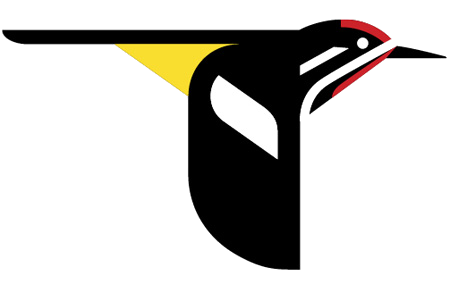
|
Ornithology lab releases high-resolution migration maps
The eBird program at the Cornell Lab of Ornithology just released 500 animated maps spanning the entire Western Hemisphere. The maps show in fine detail where hundreds of species of migratory birds travel, and how their numbers vary with habitat, geography and time of year. |

|
Cornell scientists amplify 'green' research at AAAS
On topics ranging from oceanic disease to restraining invasive species from distant seas, Cornell faculty joined more than 10,000 scientists to discuss "Envisioning Tomorrow's Earth" at the American Association for the Advancement of Science (AAAS) annual meeting, Feb. 14-16 at the Washington State Convention Center in Seattle. |

|
Cornell, Nature Conservancy to study key climate projects
One project will focus on establishing climate-ready fishing communities. More than 60% of the U.S. wild seafood production is in Alaskan waters, so the state has a high reliance on fisheries. Outcomes from this research will aid Alaska's fishing communities in finding ways to adapt to changes in the ocean, such as assessing climate-driven fisheries risk, developing a framework for optimizing fishing rights and evaluating community fishing portfolios. |

|
Army releases top 10 list of coolest science, technology advances
The U.S. Army CCDC Army Research Laboratory's chief scientist picked the coolest advances in 2019 to showcase what Army scientists and engineers are doing. Number 4 is CRYSTAL, an AI system that relies on a collective of algorithmic bots each performing a distinct task to identify a map of material phases. |

|
AI experts urge machine learning researchers to tackle climate change
At the Tackling Climate Change workshop at this year's NeurIPS conference, some of the top minds in machine learning came together to discuss the effects of climate change on life on Earth, how AI can tackle the urgent problem, and why and how the machine learning community should join the fight. The panel included Carla Gomes. |

|
NSF CISE Distinguished Lecture: "Computational Sustainability: Computing for a Better World and a Sustainable Future"
Carla Gomes spoke in the CISE Distinguished Lecture Series, providing an overview of computational sustainability, with examples ranging from wildlife conservation and biodiversity, to poverty mitigation and materials discovery for renewable energy materials. |

|
AI helps shrink Amazon dams' greenhouse gas emissions
Hydropower dams can provide large quantities of energy with carbon footprints as low as sources like solar and wind. But because of how they're formed, some dams emit dangerously high levels of greenhouse gases, threatening sustainability goals. A Cornell-led team including ecologists, computer scientists and researchers from South American organizations has developed a computational model that uses artificial intelligence to find the most promising configurations of dam sites amid a staggering number of possible combinations. |

|
10 out of 200: For a better tomorrow - Anmol Kabra applies machine learning to sustainability problems
Meet Anmol Kabra, computer scientist and one of this year's 10 out of 200 young researchers participating in the 7th Heidelberg Laureate Forum from September 22nd -27th, 2019. |

|
Innovative AI system could help make fuel cells more efficient
An artificial intelligence system developed by a Cornell-led team has identified a promising material for creating more efficient fuel cells - a potential breakthrough in both materials science and machine learning. The system, which relies on a collective of algorithmic bots each performing a distinct task, sifts through hundreds to thousands of combinations of elements to create a map of phases - arrangements of atoms in relation to each other - that humans can then use to determine which might work as a new material. |

|
How many taxis can scan a city? Fewer than you'd think
Just 10 taxis equipped with mobile sensors can survey a third of Manhattan's streets in a day, inexpensively gathering valuable data about factors such as air quality, street conditions and bridge stability to provide an accurate and timely snapshot of a city's health, according to a new study. The researchers also found that the pattern of taxi movement was strikingly similar among cities in North America, Europe and Asia, despite differences in traffic patterns, driving habits and the needs of individual passengers. |

|
Yexiang Xue won a Cornell CS Department Doctoral Dissertation Award
Yexiang Xue's thesis "Combining Reasoning and Learning for Multi-Stage Inference in Computational Sustainability and Scientific Discovery" was selected as one of this year's winners of the Cornell CS Department Doctoral Dissertation Award. |

|
A new effort to save birds pinpoints in amazing detail where they fly
Dozens of farmers leave water on their fields for a few extra weeks each season to create rest stops for birds. The campaign has not only helped salvage a vital stretch of the north-south migration path called the Pacific Flyway but also tested a fresh model for protecting wildlife. The experiment is built on new research by the Cornell Lab of Ornithology, which blends the sightings of tens of thousands of birdwatchers with satellite photos and wildlife data. The combination produces digital maps so precise that they can predict when and where birds will come through, so that farmers know when to flood their fields. |

|
Scientists propose bird conservation plan based on eBird data
An international team of scientists used eBird, the Cornell Lab of Ornithology's global citizen science database, to calculate how to sufficiently conserve habitat across the Western Hemisphere for all the habitats these birds use throughout their annual cycle of breeding, migration and overwintering. The study provides planners with guidance on the locations and amounts of land that must be conserved for 30% of the global populations for each of 117 bird species that migrate to the Neotropics (Central and South America, the Caribbean and southern North America). |

|
Cornell hosts largest-ever High School Programming Contest
182 students competed in Cornell's annual High School Programming Contest, held simultaneously at Cornell Tech and in Rhodes Hall on the Ithaca campus. At Cornell Tech, twice as many girls competed as last year. Competitors came from schools in New York City and central New York and as far away as Pennsburg, Pennsylvania and Southborough, Massachusetts. |

|
A Tribute to the Women in Lab Coats, Behind the Microscopes and Computer Screens
Carla Gomes was one of three professors highlighted in the Cornell Daily Sun's International Women's Day feature looking at influential female leaders in STEM. |

|
Study: Climate change is leading to unpredictable ecosystem disruption for migratory birds
Using data on 77 North American migratory bird species from the eBird citizen-science program, scientists at the Cornell Lab of Ornithology say that, in as little as four decades, it may be very difficult to predict how climate change will affect migratory bird populations and the ecosystems they inhabit. Their conclusions are presented in a paper published in the journal Ecography. |

|
Acclaimed science writer, Philip Ball discusses Computational Sustainability in a new article in Nature Materials
In the article, "Learning from the Big Picture," Philip Ball highlights the Computational Sustainability Network (CompSusNet), "an initiative sponsored by the US National Science Foundation and involving 13 US academic institutions as well as international partners, which aims to nurture this emerging field." He notes that "the project is led by researchers at Cornell University, headed by computer scientist Carla Gomes, director of Cornell's Institute of Computational Sustainability." |

|
The Rockefeller Foundation Establishes Atlas AI - New Startup to Generate Actionable Intelligence on Global Development Challenges
The Rockefeller Foundation today marked the public launch of Atlas AI, a social enterprise established by the Foundation and a team of Stanford University professors including Stefano Ermon, to develop data products to support global development. Atlas AI works at the intersection of development economics, crop science, remote sensing, and artificial intelligence to generate detailed insights on poverty, crop yield and economic trends across Sub-Saharan Africa. |

|
AI adjusts for gaps in citizen science data
Di Chen and Carla Gomes developed a deep learning model that effectively corrects for location biases in citizen science by comparing the population densities of various locations. Gomes and Chen tested their model on data from the Cornell Lab of Ornithology's eBird, which collects more than 100 million bird sightings submitted annually by birdwatchers worldwide. |

|
Giving algorithms a sense of uncertainty could make them more ethical
Carla Gomes has experimented with techniques for handling decisions with uncertainty in her work. In one project, she's been developing an automated system to evaluate the impact of new hydroelectric dam projects in the Amazon River basin. The dams provide a source of clean energy. But they also profoundly alter sections of river and disrupt wildlife ecosystems. |

|
Winds of climate change will affect migratory birds
Under future climate scenarios, changing winds may make it harder for North American birds to migrate south in the autumn but easier for them to come north in the spring. Researchers from the Cornell Lab of Ornithology came to this conclusion using data from 143 weather radar stations to estimate the altitude, density and direction birds took during spring and autumn migrations over several years. |

|
New maps light up information on birds
A new series of dynamic bird maps from the Cornell Lab of Ornithology reveals unprecedented details not only about where the birds are, but how their numbers and habitats change through the seasons and years. The maps and the data behind them will aid land managers and scientists, helping to identify conservation needs and priorities. |

|
Learning from the big picture
One major CompSustNet research strand is the discovery of new materials for energy generation and storage (fuel cells, batteries, solar and so on) from high-throughput X-ray diffraction experiments. That goal requires an ability to solve the phase-mapping inverse problem in crystallography, and then to correlate observed structures with functional properties. Both are tasks well suited to machine learning. |

|
Increasing bike-share efficiency: Researchers from Cornell University recognized with INFORMS Daniel H. Wagner Prize
The prize-winning paper "Analytics and Bikes: Riding Tandem with Motivate to Improve Mobility", which provided unique application of analytics and O.R. to improve the placement of bike docking stations and create an inventive approach to replenish and rebalance these docking stations, was presented by Daniel Freund, Shane G. Henderson, and David B. Shmoys and Eoin O'Mahony. |

|
Harnessing machine learning and big data to fight hunger
A group of Cornell researchers led by Chris Barrett has received a $1 million grant from the U.S. Agency for International Development to use machine learning to rapidly analyze agricultural and food market conditions, aiming to better predict poverty and undernutrition in some of the world's poorest regions. |

|
CS Prof Bart Selman Named President-Elect of AAAI
Congratulations to Computer Science Professor Bart Selman, who has been named president-elect of of the Association for the Advancement of Artificial Intelligence (AAAI). AAAI is a non-profit scientific society devoted to advancing the scientific understanding of the mechanisms underlying thought and intelligent behavior and their embodiment in machines. AAAI aims to promote research in, and responsible use of, artificial intelligence. |

|
NSF grants $1.3M to Cornell, partners to hunt eelgrass disease
Co-principal investigators Drew Harvell and Carla Gomes, to develop a software application called Eelisa. After artificial intelligence training sessions, Eelisa will sort through thousands of seagrass blade images in minutes to expertly quantify lesions. |
|
|
With real-time decisions, Citi Bike breaks the cycle of empty stations
Cornell research has improved bike sharing in New York and other cities, providing tools to ensure bikes are available when and where they're needed through a crowdsourcing system that uses real-time information to make decisions. Citi Bike redistributes its bicycles around New York City using a program called Bike Angels, based on research by David Shmoys. |

|
Trace metals make a big splash with marine microorganisms
A new Cornell-led study shows that trace metals, deposited by aerosols like dust and other particles in the atmosphere, have a hefty impact on marine biota, affecting biological productivity and changing the ocean ecosystem. |

|
CS Undergrads build autonomous airship
An interdisciplinary undergraduate team working with Prof. Ross Knepper is building an autonomous airship (or blimp). Once automated, Knepper plans to use the airship to support scientific and conservation missions. |
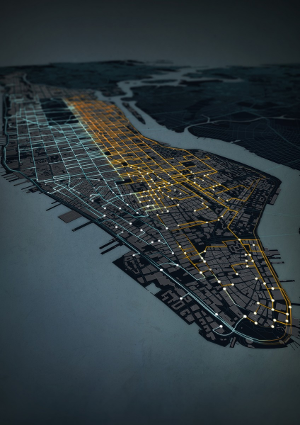
|
Optimizing taxi fleet size the subject of multi-university research
A study conducted by MIT's Senseable City Laboratory - with important input from Steven Strogatz - offers a network-based solution to the classic "minimum fleet problem:" Given a collection of trips - specified by origin, destination and start time - what is the minimum number of vehicles needed to serve all the trips, without incurring any delay to the passengers? |

|
Recent PhD grad wins highest award for junior AI researchers
Stefano Ermon has been awarded the 2018 IJCAI Computer and Thought Award, which is the highest award given to a junior AI researcher. Stefano is an assistant professor of computer science and a fellow of the Woods Institute for the Environment at Stanford University, and was previously a Ph.D. student in ICS. |

|
New Research Unveils Bird Migration Strategies: Combining weather radar and human observations yields greater insight
Using weather surveillance radar and citizen-science data, researchers are learning how migratory birds return to their breeding grounds in North America each spring with near-pinpoint accuracy. |

|
How citizen scientists are helping to protect migratory birds
Scientists from the Canadian government, Carleton University, the University of British Columbia, and the Cornell Lab of Ornithology combine eBird data from more than 100 songbird species that migrate from Central or South America to Canada and the U.S. to accurately predict where species are each week of the year. |

|
Cornell Tech, Ithaca campus host high school programming contest
For the first time, the Annual Cornell University High School Programming Contest teamed up with Cornell Tech to host simultaneous events on each campus April 6. The contest, the brain child of CIS research professor Robbert van Renesse, aims to encourage high school students interested in computer science and programming. |
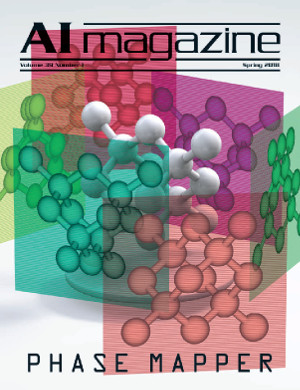
|
Phase Mapper: Accelerating Materials Discovery with AI
The Phase-Mapper project, a collaboration between ICS and the Joint Center for Artificial Photosynthesis (JCAP) at Caltech, was featured as the cover article in the Spring 2018 issue of AI Magazine. |

|
Self-driving cars are already really safe
Bart Selman was quoted in this CNN article about a pedestrian struck and killed by a self-driving Uber. |

|
Self-organization in Space and Time
Kevin O'Keeffe, along with Hyunsuk Hong of Chonbuk National University in South Korea, and Steven Strogatz, developed a simple mathematical model for simultaneous spatially-coordinated and synchronous behavior. |
|
|
Why Don’t Patients Get Sick in Sync? Modelers Find Statistical Clues
Steven Strogatz and Bertrand Ottino-Loffler, interested in the dynamics of how sick cells take over networks of healthy ones and working with Jacob Sctott at the Cleveland Clinic, proposed an explanation for the observed distribution of incubation periods based on evolutionary dynamics on graphs. |

|
Interactive Map: See How Birds Migrate Throughout the Western Hemisphere
National Geographic's maps were made in part using migration data and models from the eBird project, Cornell Lab of Ornithology. |

|
CORALS scholars to explore health of Pacific waters
This spring, six undergraduate students will toss away wool socks, surrender winter coats and flee the Northeast's slushy roads to gauge ocean health along the Hawaiian and Washington state coasts. |

|
ACM Recognizes 2017 Fellows for Making Transformative Contributions and Advancing Technology in the Digital Age: Carla Gomes
ACM has named 54 members, including Carla Gomes, ACM Fellows for major contributions in areas including database theory, design automation, information retrieval, multimedia computing and network security. Prof. Gomes was selected "for establishing the field of computational sustainability, and for foundational contributions to artificial intelligence." |
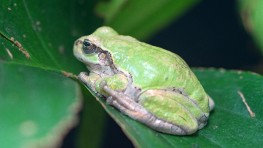
|
Strogatz's study of 'swarmalators' could direct future science
Curiosity regarding the Japanese tree frog led mathematician Steve Strogatz and student Kevin O'Keeffe to the study of systems that align both in time and space - which they've dubbed 'swarmalators.' |

|
AI for Discovering Clean Energy Materials
Carla P. Gomes, Computer Science, and John M. Gregoire (California Institute of Technology) are working toward leveraging recent advances in high-throughput materials science and computer science to create a catalyst discovery platform with broad implications for the development of functional materials. This research is part of a large, multi-university, collaborative effort funded by the Toyota Research Institute to find better fuel cell catalysts. |

|
Computational Sustainability: Computing for a Better World
Bart Selman spoke at the Microsoft Research India Workshop on AI and Social Good in Bangalore, and a video of the talk is available. |
|
|
Cornell digital ag program integrates with John Deere Operations Center
Ag-Analytics, a cloud-based application created by Prof. Josh Woodard that provides digital agriculture analytics, has integrated its technology with the John Deere Operations Center, the manufacturer's online platform. This allows farmers to securely use their high-resolution agriculture data in real time to extract more useful operations information. |
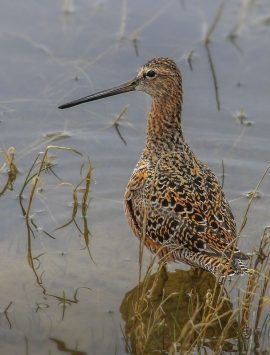
|
eBird Science: Prioritizing dynamic conservation for migratory birds
eBird data is enabling new cost-effective approaches to complementing protected areas with 'pop-up' wetlands, using big data and new market mechanisms to create habitat when and where birds need it most. This work has just been published in Science Advances, "Dynamic conservation for migratory species." |
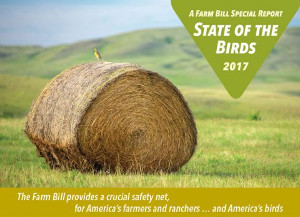
|
State of the Birds 2017: Farm Bill Special Report
The State of the Birds 2017: Farm Bill Special Report, released by the North American Bird Conservation Initiative (NABCI), documents the many benefits the Farm Bill—America's single largest source of conservation funding for private lands—has delivered to birds, farmers, and rural communities. |

|
Two groups both win $7.5M to study AI, autonomous systems
Van Dover and Gomes' group is working on a project titled "Scientific Autonomous Reasoning Agent (SARA): Integrating Materials Theory, Experiment and Computation." Their goal is to develop a multi-agent system that accelerates the science of materials discovery and development by integrating quantum physics principles, experimental materials synthesis, processing, characterization and AI-based algorithms. |

|
AI for Earth
(Video) Carla Gomes, Tanya Berger-Wolf, and Milind Tambe were speakers in the AI for Earth session, chaired by Lucas Joppa, at the Microsoft Research Faculty Summit 2017: The Edge of AI. |

|
Baseball leads to Amazon dams
While chatting at their sons' baseball games, Professors Flecker and Gomes saw an opportunity to collaborate to optimize location of dams in the Amazon River basin. "I'm a computer scientist, and I'm passionate about using the advancement of computer science to impact the world." The calculation of the placement of dams presents complex computational problems. |

|
Course explores future with robots and AI
A new course at Cornell, CS 4732, Ethical and Social Issues in AI, explored how robots and artificial intelligences may change our world, and what we ought to be doing about it. "These undergrads may be directly involved in developing the software behind these systems," Selman added, noting that many may go on to jobs with Google, Tesla and other major players. |
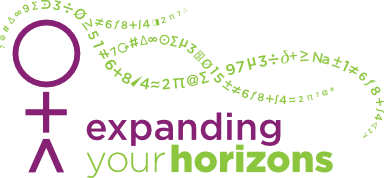
|
ICS Sponsored Expanding Your Horizons (EYH) 2017 at Cornell
ICS was a sponsor of EYH, a one-day conference for 7th–9th grade girls, that was held on April 15. The goals of the conference are to stimulate the participants' interest in math and science through these hands-on activities, to provide them with female scientist role models, and to foster awareness of opportunities in math and science-related careers. |

|
Radical collaboration protects Colombia's birds, coffee farmers
Amanda Rodewald, professor of Ornithology and Director of Conservation Science at the Lab of Ornithology, and Juan Nicolás Hernandez-Aguilera, a doctoral candidate in Applied Economics and Management, are working towards sustainability for both Colombian coffee farmers and the migratory birds that use shade-covered coffee plantations as habitat. |

|
Angela K. Fuller elected to "Fellow" in The Wildlife Society!
Associate Professor Angela K. Fuller has been elected as a The Wildlife Society Fellow in recognition of her exceptional service to the wildlife profession. |

|
Taxi-sharing in cities follows universal maths law
Steven Strogatz et. al. discovered a universal shareability curve for four different cities, showing potential to improve efficiency of car and taxi rides. "Using data on millions of taxi trips in New York City, San Francisco, Singapore, and Vienna, we compute the shareability curves for each city, and find that a natural rescaling collapses them onto a single, universal curve." |

|
Underwater grasslands can cut concentrations of harmful bacteria in half
Cornell Professor C. Drew Harvell and Joleah Lamb, Nature Conservancy NatureNet fellow at the Atkinson Center studied Indonesian shoreline and discovered how crucial seagrass meadows are for both marine and human health. Harmful bacteria are reduced threefold within seagrass meadows, as reported in Science. |

|
Combining AI with Combinatorial X-ray diffraction enables rapid phase mapping of new materials
JCAP's high-throughput team has partnered with computer scientists from Cornell University including Yexiang Xue, Junwen Bai, Ronan LeBras, Brendan Rappazzo, Richard Bernstein, Johan Bjorck, R. Bruce van Dover and Carla Gomes, to develop a new method for rapid construction of phase diagrams. |

|
Eoin O'Mahony (CS PhD '15) received the INFORMS George B. Dantzig Dissertation Award at this year's annual INFORMS conference
Eoin O'Mahony (CS PhD '15) received an award at the 2017 INFORMS conference, for writing the most innovative and practical dissertation in operations research and management sciences. O'Mahony's thesis, "Smarter tools for (Citi)Bike Sharing," was advised by Professor David Shmoys, and combines theory and practice in real field experiences. |

|
Barrett, Leibovich and Walsh named AAAS fellows for 2016
Christopher B. Barrett was elected a fellow of the American Association for the Advancement of Science (AAAS), "My research, teaching and outreach explore why unnecessary injustice continues to disfigure the richest, most technologically advanced societies in history and what individuals and institutions can do to improve matters..." |

|
Teaching robots to solve their own problems
Ross Knepper, assistant professor of computer science, embarks on a project to make robots "persistently autonomous," so they can deal with unexpected problems, and in an early test will collaborate with Carla Gomes to deploy autonomous drones to monitor the condition of vegetation in Kenya. |

|
When animals share, conservation is affordable
Bistra Dilkina, Carla Gomes, OSU, and USGS collaborators propose optimization solutions for multiple species wildlife corridor planning in the paper, "Trade-offs and efficiencies in optimal budget-constrained multispecies corridor networks," in the September 27 issue of Conservation Biology. |

|
Sea Star population decline measured by citizen scientists
C. Drew Harvell published "Devastating Transboundary Impacts of Sea Star Wasting Disease on Subtidal Asteroids," in the Oct. 26 PLoS One. "When sea star wasting disease struck in 2013, the large populations of sunflower sea stars (Pycnopodia helianthoides), which live below the tidal line, dwindled ... and then disappeared." |

|
BPR, biodiversity-productivity relationships in global forests
Chris Barrett is an author on the October 14, 2016 Science paper "Positive biodiversity-productivity relationship predominant in global forests". BPR is a useful measure of the health of ecosystems. "Forests are the most important global repositories of terrestrial biodiversity, but deforestation, forest degradation, climate change, and other factors are threatening approximately one half of tree species worldwide." |

|
Andrew Mude and Chris Barrett win USAID award for drought insurance
The USAID Board for International Food and Agricultural Development gave its 2016 Award for Scientific Excellence to Chris Barrett and Andrew Mude, Ph.D. '06, principal economist at the International Livestock Research Institute for scaling up their innovative insurance to support herders in Africa. |

|
Pastoral mobility and policy recommendations for livestock herding in the Borana pastoral system in southern Ethiopia
Cornell's Chris Barrett and Andrew Mude studied mobility patterns of herders in Ethiopia. Mobility strategies to cope with drought and stress were observed. Population growth and drought create pressures that traditional methods of herding may not be able to compensate for. Land use should be planned to detract from herd mobility as little as possible. |

|
Students Solve Sustainability Problems at BigRed Hacks
Hundreds of student hackers listened as Professor Carla Gomes kicked off 36 hours of hacking for sustainability with the talk 'Computational Methods for Balancing Environmental, Economic, and Societal Needs' at the BigRed Hacks event, part of Major League Hacking. |

|
Materials to do anything under the sun
Carla Gomes, professor of computer and information science, and Bruce van Dover, chair of materials science and engineering are advancing Materials Discovery by combining computational techniques with citizen scientists who can identify simple patterns within images. Gomes' lab can then analyze one-million combinations of materials in a day. |

|
Forest Elephant population grows slowly
Andrea Turkalo and Peter Wrege's paper in Journal of Applied Ecology notes the decline in Forest Elephant populations caused by habitat loss and illegal killing. 23 years of demography data from Dzanga in Central African Republic show the low reproductive potential of the species. |

|
CompSust-2016 conference to focus on computing for a greener world
The Computational Sustainability movement comes home as Cornell hosts CompSust-2016, the fourth International Conference on Computational Sustainability, July 6-8. This marks the official launch of CompSustNet, a worldwide organization bringing together computer, environmental, materials and social scientists, as well as biologists and physicists to expand the field of computational sustainability. |
NSF Expedition in Computing
Computational Sustainability: Computational Methods for a Sustainable Environment, Economy, and Society
Collaborators
Drop us an email if you'd like to join us in establishing the field of Computational Sustainability.
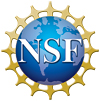
Sponsored by the National Science Foundation
Vision: Computer scientists can — and should — play a key role in increasing the efficiency and effectiveness of the way we manage and allocate our natural resources, while enriching and transforming Computer Science.









